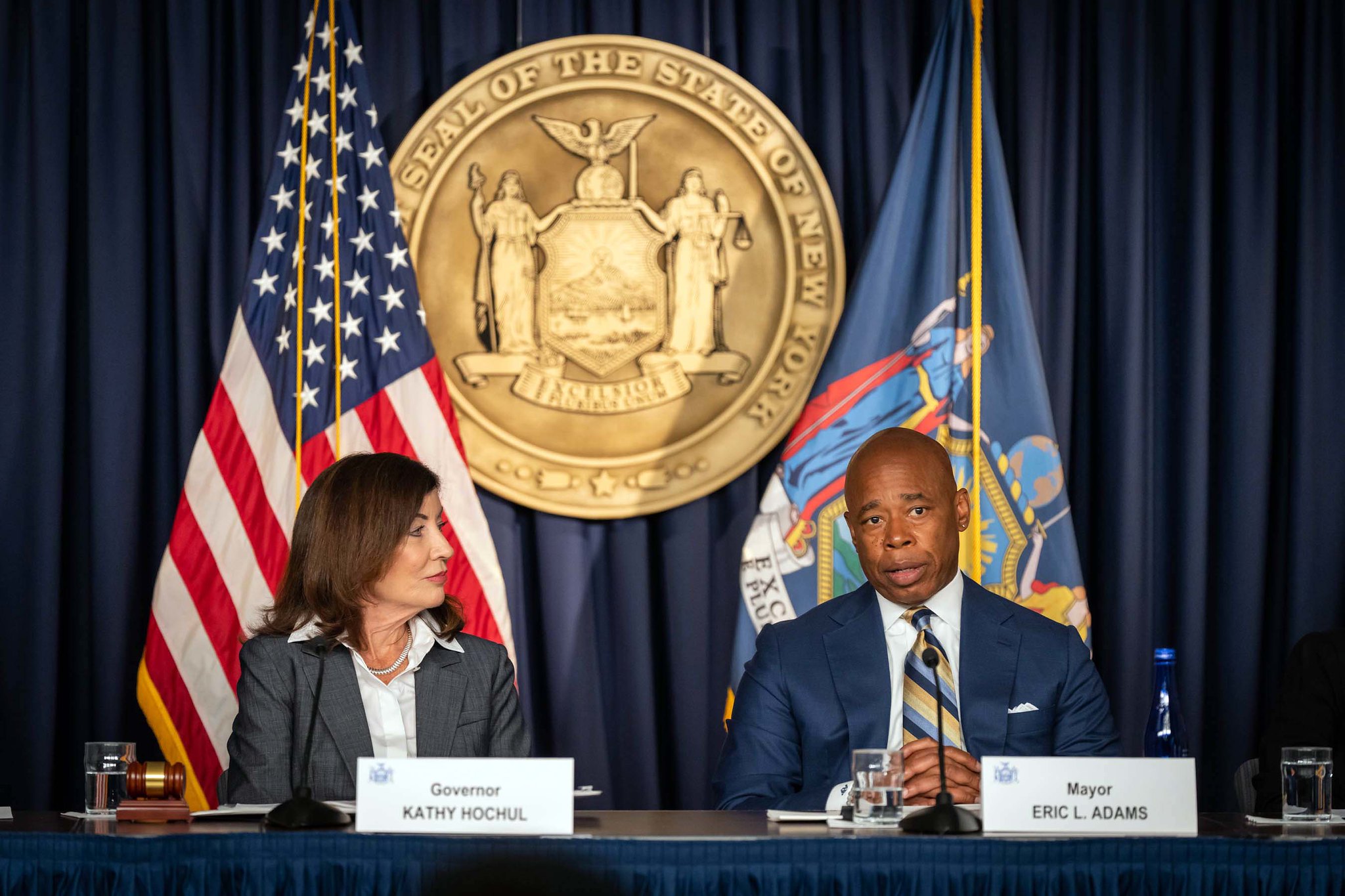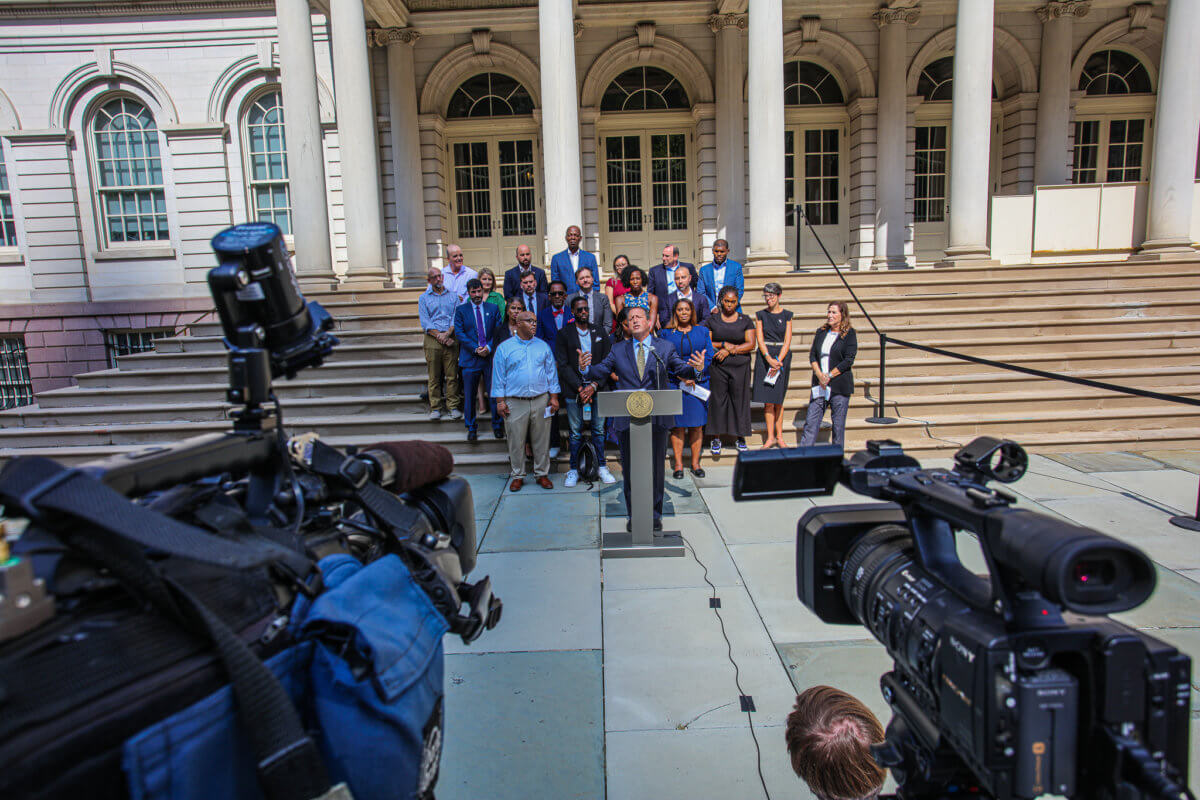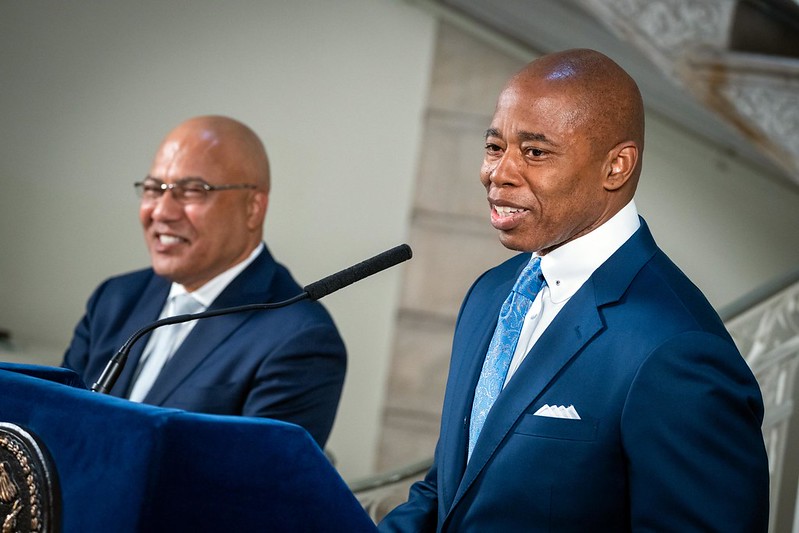Facing warnings of economic uncertainty on the horizon, Mayor Eric Adams Monday instructed every city agency to cut their budgets for the next few years.
As first reported by Politico New York, Adams’ budget director Jacques Jiha sent a memo to every city agency Monday saying they must cut their budgets for the current fiscal year – Fiscal Year 2023 – by 3 percent and make cuts of 4.75 percent for each of the subsequent three years. Jiha told agency heads they have to submit their plans for making the cuts by Sept. 30 and they must find a way to tighten their belts without making layoffs and new fees and fines.
“The mayor is implementing a Program to Eliminate the Gap (PEG) in the November Financial Plan,” Jiha wrote in the letter. “Agencies are expected to reduce their city-funded expenses by 3.0% in Fiscal Year 2023, and 4.75% in Fiscal Years 2024 as well as the outyears. If PEG targets are not met [the Mayor’s Office of Management and Budget (OMB)] will identify savings opportunities. Given the magnitude of the threat to our financial stability, every agency must participate.”
The move could save the city $2.6 billion by June 30, 2024, according to the mayor’s office. Agencies aren’t allowed to make new hires until they submit their plans for making the cuts.

The directive was issued following gloomy economic forecasts from the state and city fiscal watchdogs at the annual New York City Financial Control Board (FCB) meeting last week, where state Comptroller Tom DiNapoli warned the city could be facing a potential $10 billion budget shortfall in 2026. Jiha identified similar risk factors to DiNapoli facing the city, including diminished Wall Street returns – which means the city will need to significantly increase contributions to its pension funds, expiring labor contracts that need to be renegotiated as well as rising health care costs, energy prices and inflation.
“Those added costs will increase gaps by millions of dollars over the Financial Plan,” Jiha wrote. “Making matters worse, an economic slowdown could lead to declining tax revenue.”
In contrast to past cost saving moves by the city, no agency will be spared from making these cuts, Jiha said. That includes the over $5 billion NYPD budget, the size of which was a major source of contention during budget negotiations amid national protests against police in summer 2020.
Fiscal watch dogs were quick to applaud Adams’ belt-tightening move. That includes city Comptroller Brad Lander – usually a champion of government spending – who said it’s a “a prudent step.”

Andrew Rein, director of the Citizens Budget Commission (CBC), said the PEG is a “necessary step to stabilize New York City’s budget in the long run,” in a statement.
“This is a timely call that rightly focuses on increasing productivity to reduce recurring costs while preserving services that New Yorkers rely on,” Rein said. “The directive to identify savings of 3 percent this year, growing to 4.75 percent in future years, is reasonable and provides agencies runway to restructure programs and operations to achieve the PEG targets.”
But not everyone is on board with the new PEG. Through a spokesperson, City Council Speaker Adrienne Adams blasted the measure as cuts that will hurt city agencies.
“It is counterproductive for [the administration] to use this PEG to further restrict city agencies that need more capacity from hiring,” the spokesperson said. “The city needs to be judicious to ensure it is making smart investments that yield long-term benefits for our city and communities, rather than broadly making cuts that can undermine the health of our neighborhoods.”







